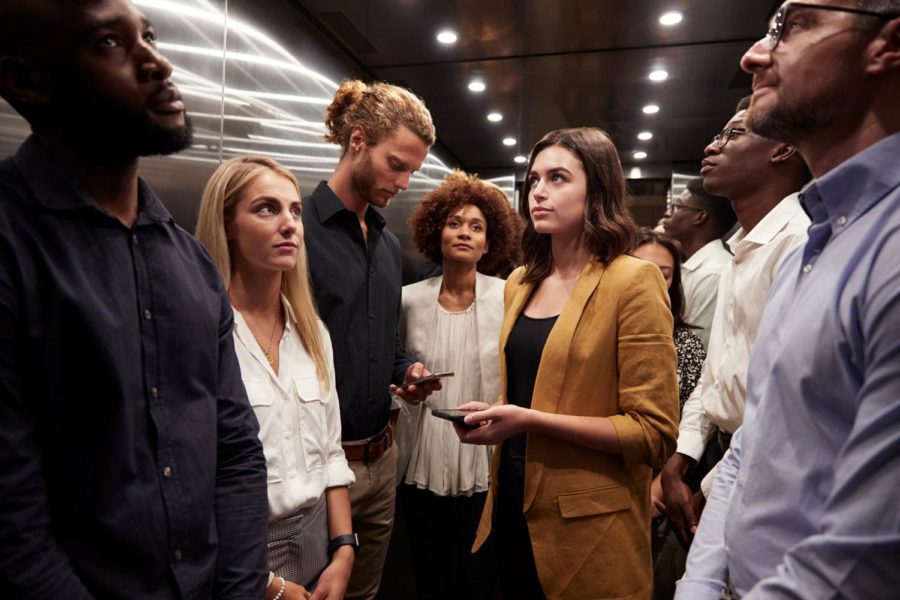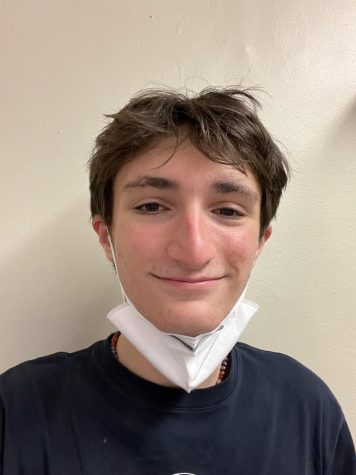Trying to avoid that post-COVID social awkwardness? You’re not alone.
June 10, 2021
For some, the idea of “going back to normal” was exciting and something many people longed for. Which is why it makes sense that the first search query on Google when you look up “When will” is “When will COVID end?”
Now that it’s here, some people aren’t so sure they’re ready for it.
The CDC announced in the past month that fully vaccinated people (meaning those who are two weeks past their 2nd dose of Pfizer or Moderna’s vaccine or two weeks past their first and only dose of the Johnson & Johnson vaccine) can do a lot more things without fear of getting COVID or getting seriously ill from it, including not needing to wear a mask in outdoor spaces and all indoor spaces excluding healthcare settings, or airports/planes, buses and trains. Fully vaccinated people can now see other fully vaccinated people indoors without having to social distance or wear a mask.
That’s great news for extroverted people who have been cooped up and dreaded every second of it. Other people worry that it’ll be tough to renavigate the social life they once found to be normal.
“Our ability to adjust is a double-edged sword because now that we’re used to isolating so much, it’s going to be yet another transition to engage with others socially in person again, both indoors and outdoors,” explained Paraskevi Noulas, PsyD, a psychologist at NYU Langone Health in an interview with Healthline.
The inability to adjust to normal social life has only been amplified for school-aged students, who all nearly eat, breathe, and sleep Zoom.
“We’ve been doing all this online stuff over Zoom, I think one factor could be the way people have been seeing people and how often…there might be some people, especially with classes and people not having their cameras on, when you see someone after 14 months of quarantine, it’s kind of awkward because you haven’t seen that person in so long,” said Joshua Ng, a junior.
“From what I’ve been thinking, maybe our perceptions of people will be a little different.”
Many people had also become so used to texting and using text lingo over the pandemic that it was hard to adjust to actually talking to people.
“My friends and I got so used to the texting language and that dynamic, actually talking to each other became kind of strange for me at least,” said Chiaka Leilah Duruaku, a junior. Duruaku added that the way we talk to our family compared to our friends is very different, and the usage of our so-called “friend muscles” as she put it, has been diminished.
Duruaku also noted that the concept of airborne particles wasn’t something many regular people thought about before this, which might add to some awkwardness in tightly packed spaces like a crowded elevator or subway from now on.
“Before, people really weren’t aware of the particles in the air, and talking in person, but now some people have become aware of germs in the air as a thing and so that’s possibly one reason,” Duruaku cited on why we’re getting to be a little awkward as we resume our normal life.
A thought that many people had was that there would be this major announcement and we’d all be able to rip off the masks and jump for joy. But, when you’ve been wearing masks and avoiding close contact with people like so many have been doing for so long, it feels a little uncomfortable, and some people aren’t ready to go back there.
“We are talking about the impact of 14 months of hearing from the CDC and the rest of the world, “Don’t touch anything. Don’t be with anyone. Don’t breathe around anyone. Be 6 or 16 feet away from others,” explained Richelle Moen, a licensed psychologist, in an interview with the Minnesota Post. “If you already tend to be a little anxious or have some OCD symptoms, you’ve probably already been feeling more fearful of the world. Then, COVID has really intensified all of those feelings — not just for you but for everybody.”
Additionally, there’s so much socially that we’re not used to. For over a year now, students all over the world have been forced to make a tough change when it comes to their education. Before, we were used to going into school eight hours a day five days a week, but when the pandemic hit, we had to make the quick transition into full remote learning.
Fortunately, with the recent widespread administration of the COVID-19 vaccine in the United States, most schools will be back to full in-person by the fall. However, this transition back into normal may prove to be just as difficult as the one we made back in March 2020.



